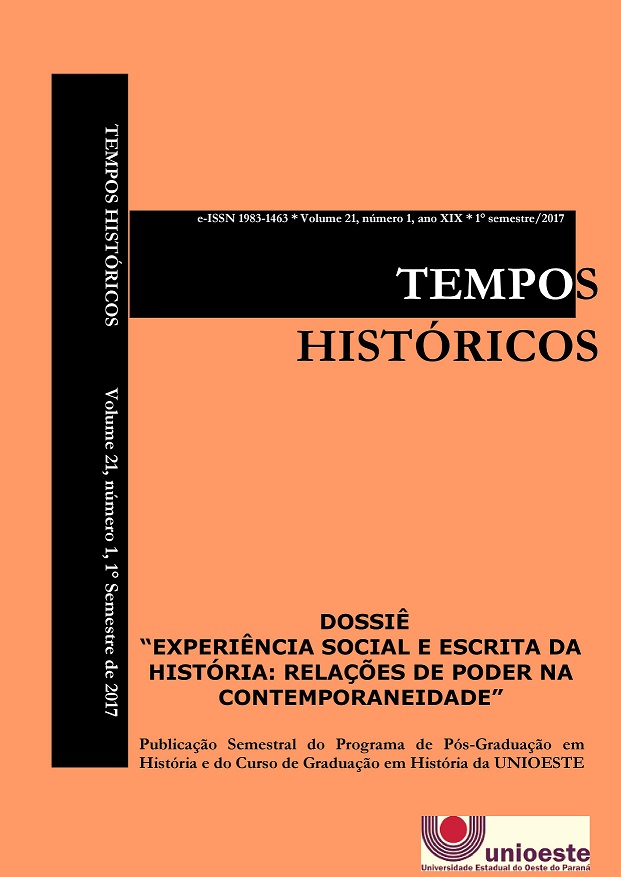The importance and limits of the democracy in Brazilian political culture (1955/1964): an analysis based on the trajectory of José Maria Alkmin
DOI:
https://doi.org/10.36449/rth.v21i1.15607Abstract
In this article I propose a reflection on the ethos and the importance of democracy within a possible Brazilian political culture. To deal with this question, I examine the political crises in 1955 and 1964; those were occasions when, respectively, the democracy was saved by a coup and destroyed by another one. I choose to analyse the interventions of the deputy José Maria Alkmin who was one of the most significant political figures on the political field at that time, and who had intense participation in these two historical moments. Having an important leadership role within the “PSD” political party, Alkmin was considered to be the civil head of the countercoup in 1955, and he was elected as Castelo Branco´s vice president during the indirect election in April 1964. This text analyses how this deputy related to, shared, reproduced or kept distance from the hegemonic values within Brazilian politics at that historical moment. As main sources for this research, I use the legislative discussions, the press, the biographies of characters involved with the political arena at that time and the bibliography concerning the theme.
Downloads
Published
How to Cite
Issue
Section
License
Aviso de Direito Autoral Creative Commons
Política para Periódicos de Acesso Livre
Autores que publicam nesta revista concordam com os seguintes termos:
1. Autores mantém os direitos autorais e concedem à revista o direito de primeira publicação, com o trabalho simultaneamente licenciado sob a Licença Creative Commons Attribution que permite o compartilhamento do trabalho com reconhecimento da autoria e publicação inicial nesta revista.2. Autores têm autorização para assumir contratos adicionais separadamente, para distribuição não-exclusiva da versão do trabalho publicada nesta revista (ex.: publicar em repositório institucional ou como capítulo de livro), com reconhecimento de autoria e publicação inicial nesta revista.
3. Autores têm permissão e são estimulados a publicar e distribuir seu trabalho online (ex.: em repositórios institucionais ou na sua página pessoal) a qualquer ponto antes ou durante o processo editorial, já que isso pode gerar alterações produtivas, bem como aumentar o impacto e a citação do trabalho publicado (Veja O Efeito do Acesso Livre).
Licença Creative Commons
Esta obra está licenciada com uma Licença Creative Commons Atribuição-NãoComercial-CompartilhaIgual 4.0 Internacional, o que permite compartilhar, copiar, distribuir, exibir, reproduzir, a totalidade ou partes desde que não tenha objetivo comercial e sejam citados os autores e a fonte.


